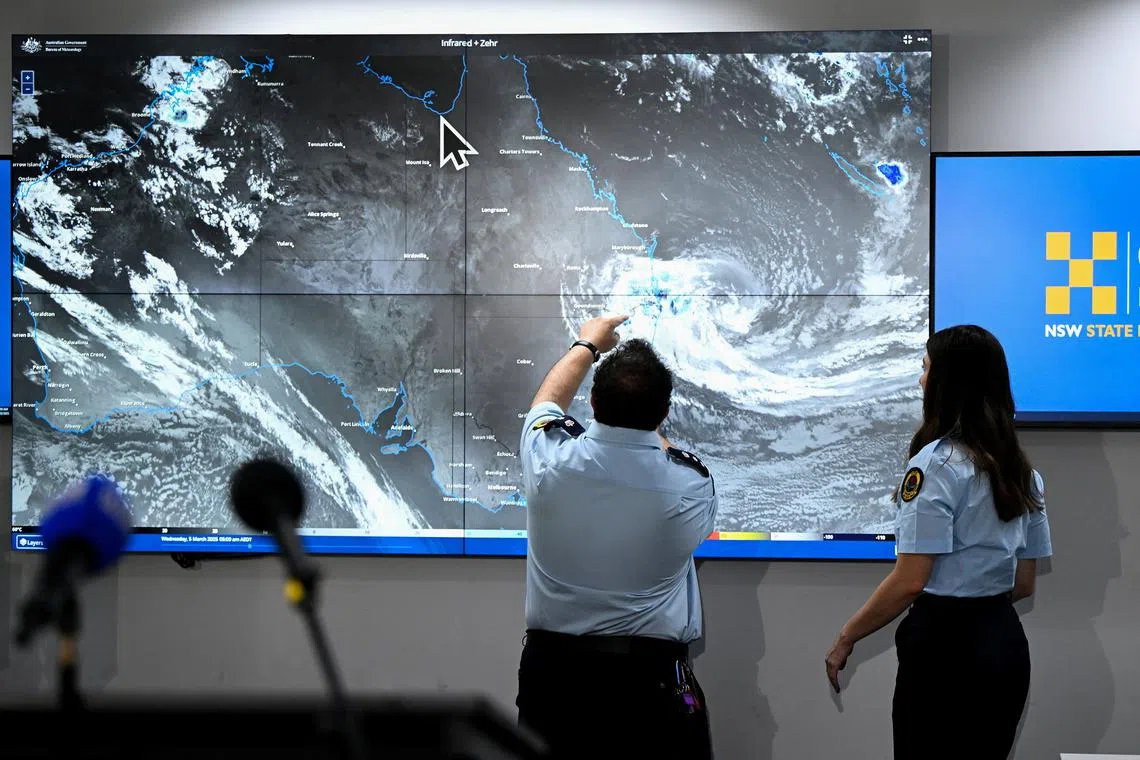Australia cyclone may prevent PM Albanese calling for an election
Sign up now: Get insights on Asia's fast-moving developments

The plan to possibly call an election slightly earlier risks unravelling as Cyclone Alfred heads towards Brisbane.
PHOTO: REUTERS
CANBERRA – A tropical cyclone off Australia’s north-east coast
While Australia must hold a vote by mid-May, there has been a growing view in and around Parliament House in Canberra that the Prime Minister will call an election slightly earlier to capitalise on improved economic data and the first interest-rate cut in more than four years.
That plan risks unravelling as Cyclone Alfred heads towards Brisbane, Australia’s third-largest city with 2.5 million people, and is due to cross the coast early on March 7.
The likelihood of torrential rains and widespread flooding suggests it would be wrong to announce an election in the wake of a natural disaster.
Australian elections are usually called on a Sunday and run for a minimum of 33 days, with the vote held on a Saturday.
Mr Albanese would have until 6pm on March 10 to call an April 12 ballot.
If he missed that deadline, he would probably be unable to call a vote for April 19 or April 26 because of public holidays around those dates.
That would leave him with the options of an election on May 3, May 10 or May 17 and means a budget scheduled for March 25 would also proceed.
Mr Albanese said he is “focused on governing”, when asked at a press conference in Queensland on March 5 about his thinking on election timing.
“That’s why I’m here. I’m continuing to govern,” he said. “That’s the sole focus I have.”
Australian elections are usually held every three years, with the date of the ballot basically at the discretion of the prime minister.
The centre-left Labour government is trying to capitalise on any advantage it can ahead of an anticipated tight election.
Mr Albanese’s Labour currently trails behind the Liberal-National Coalition in most polls, potentially just weeks out from the vote.
The central bank’s rate cut just over two weeks ago, cooling inflation, low unemployment and better economic growth all add up to an improved economic narrative for the government.
Its electoral fortunes have faded in the past 18 months as households have been squeezed by elevated inflation and high borrowing costs, with voters increasingly frustrated by the cost-of-living crisis. BLOOMBERG


